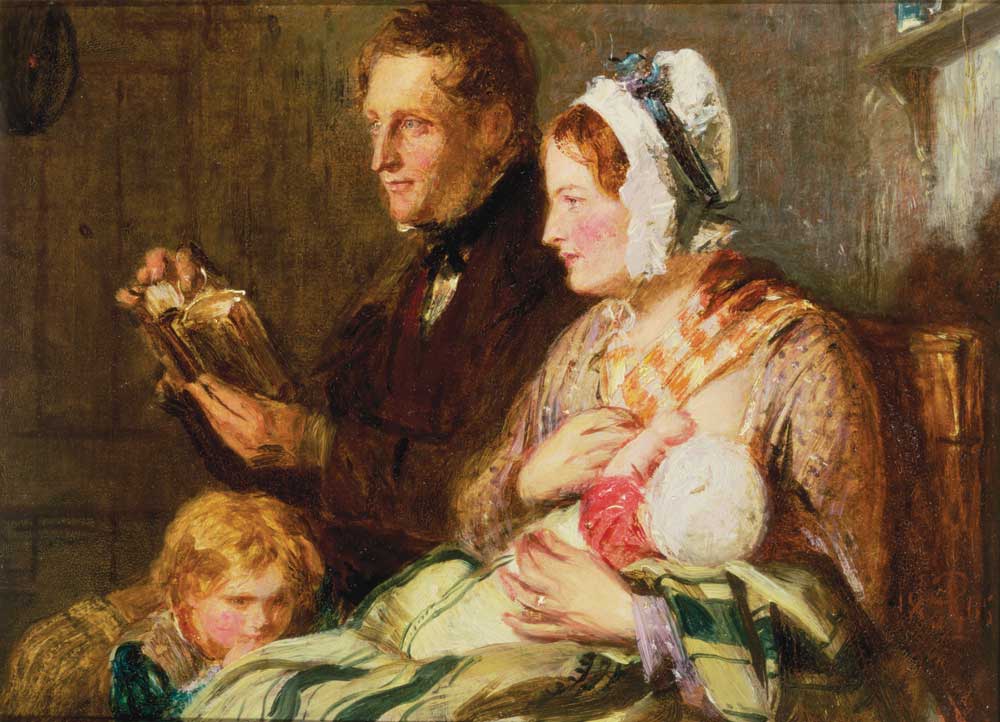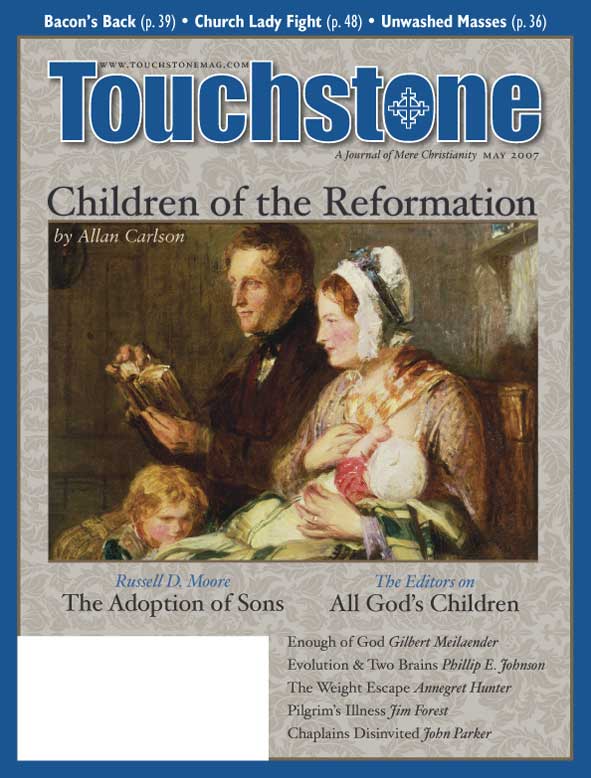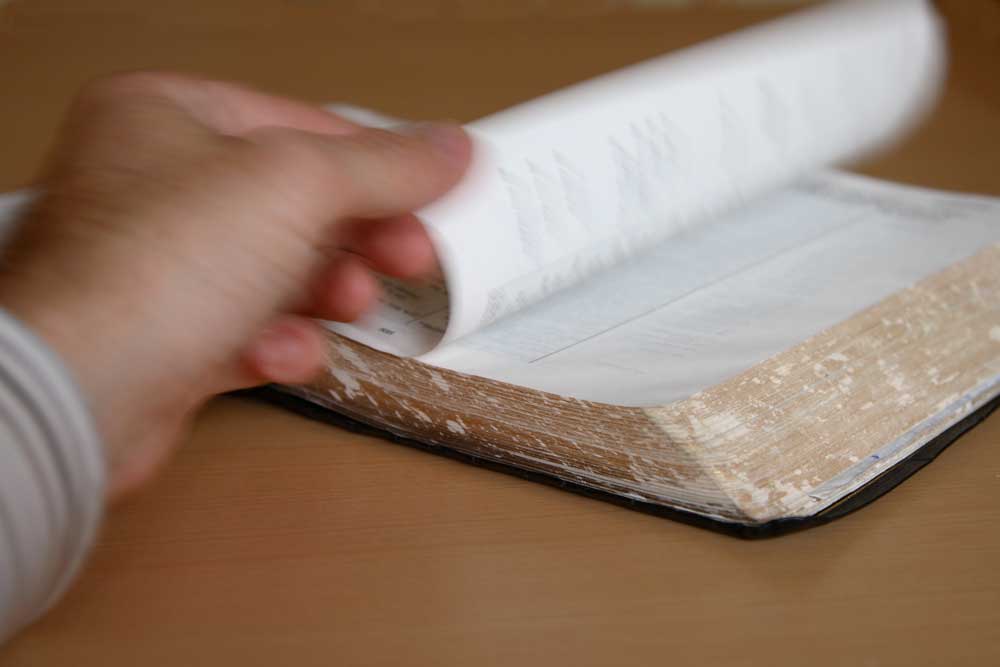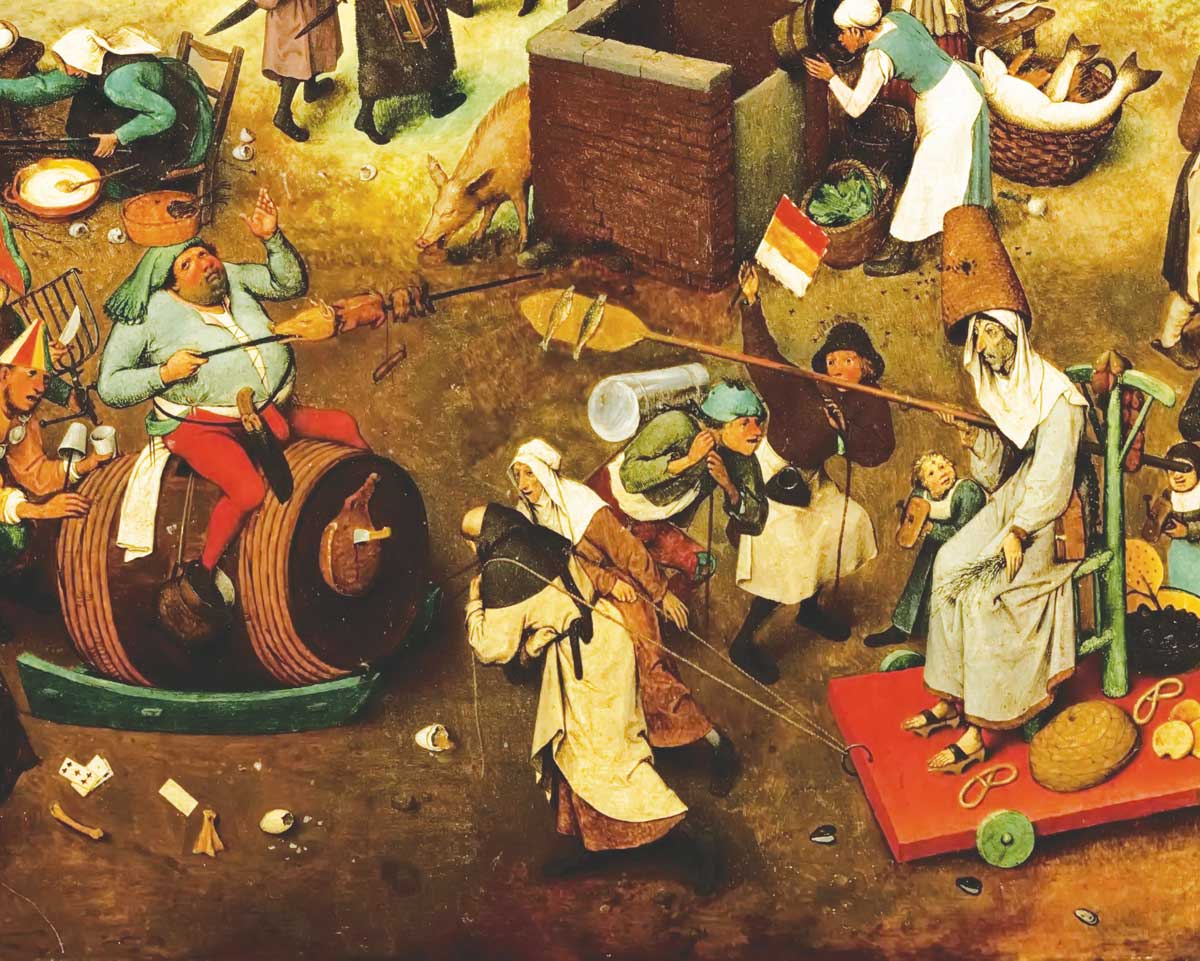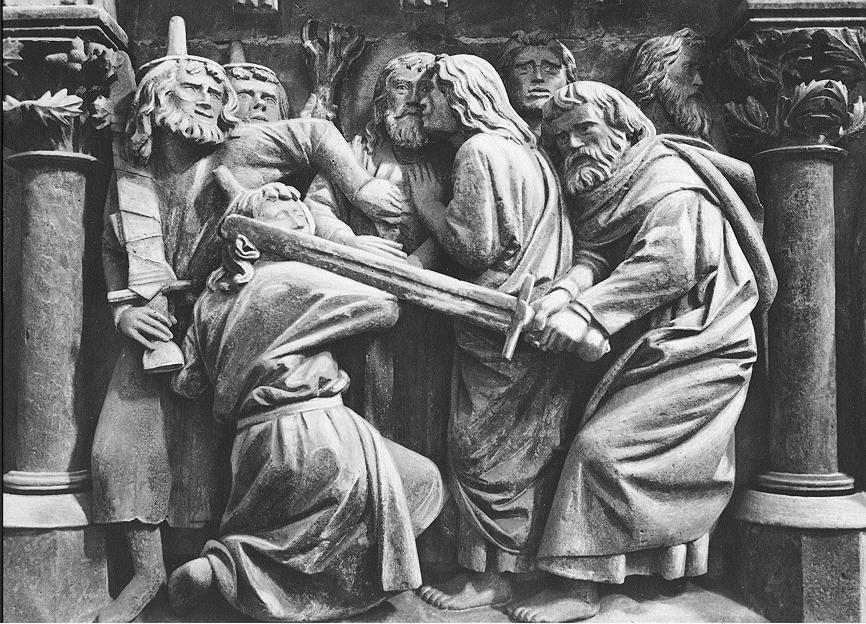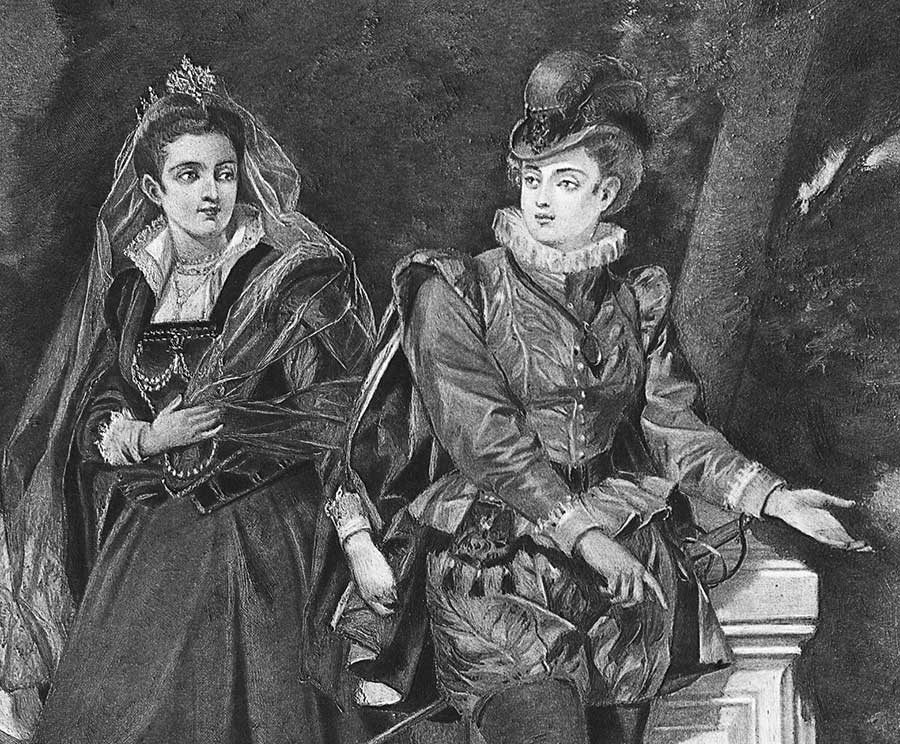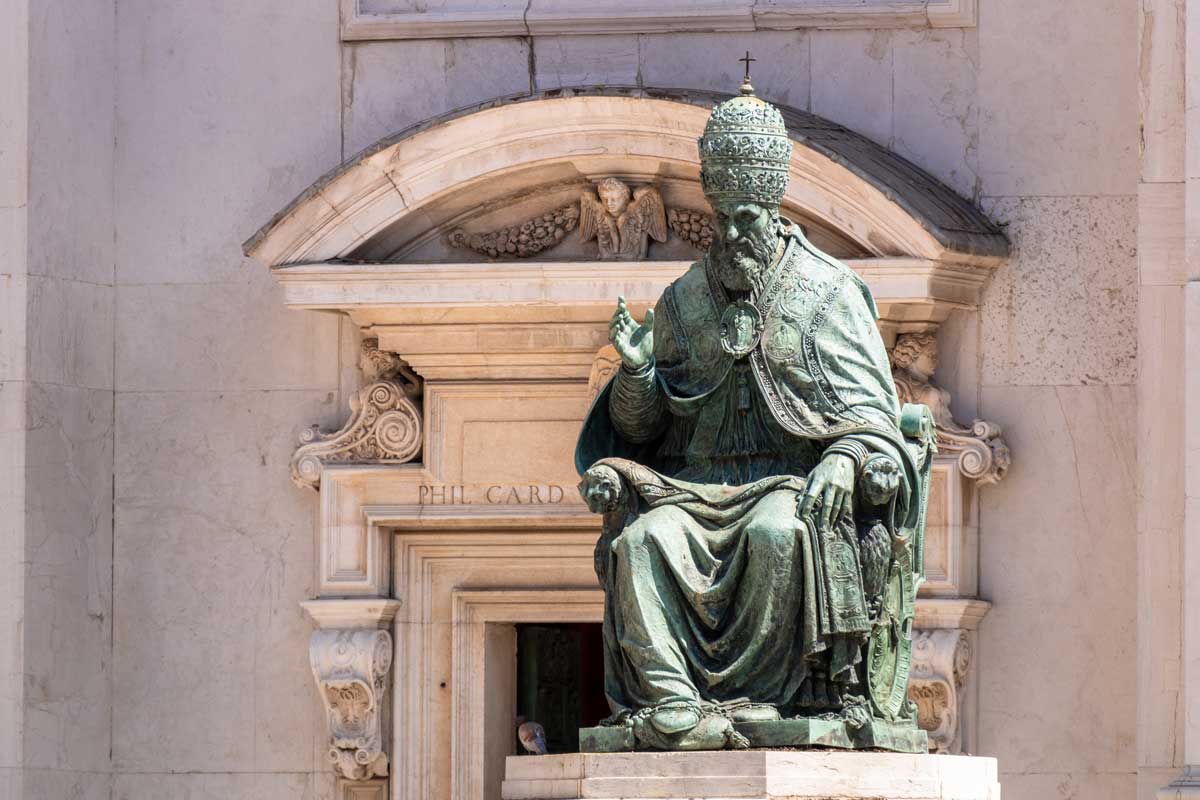Feature
Children of the Reformation
A Short & Surprising History of Protestantism & Contraception
It is a reckless analyst who risks reopening sixteenth-century disputes between Roman Catholics and the Protestant Reformers. I do so in the interest of a greater good, but my purpose is not to say who was right or who was wrong. I would simply like to explore why the Protestant churches maintained unity with the Catholic Church on the contraception question for four centuries, only to abandon this unity during the first half of the twentieth century.
I write as a historian, not an advocate. (I am a “cradle Lutheran,” but one who believes Martin Luther was wrong about what he called the impossibility of lifelong celibacy; I have come to know too many faithful Catholic priests to accept that.)
Orders & Disorders
To understand the change in Protestant thought and practice, we need to understand the Protestant vision of family and fertility, particularly as expressed by Luther and Calvin, and how it has changed over the last hundred years.
Early sixteenth-century Europe was an era very different from ours. The late medieval Church claimed about one of every four adults in celibate orders, serving either as priests, nuns, or monks or in celibate military and trading groups such as the Teutonic Knights.
Over the centuries, the religious orders had, through bequests, accumulated vast landed estates and gathered in the wealth that came through this ownership of productive land. The trading orders held remarkable assets in land, goods, and gold. Many orders were nonetheless faithful to their purposes and vows and used this wealth to tend the sick, help the poor, and lift prayers to heaven.
However, in others, spiritual discipline had grown lax. Indeed, sexual scandals of a sort rocked the church of that era. I draw strictly on Catholic witnesses for this.
For example, the great Dutch theologian Desiderius Erasmus, while always loyal to Rome, complained: “Let them prate as they will of the status of monks and virgins. Those who under the pretext of celibacy live in [sexual] license might better be castrated. . . . [T]here is a horde of priests among whom chastity is rare.”
Philip of Burgundy, the Catholic bishop of Utrecht, admitted that chastity was nearly impossible among clerics and monks who were “pampered with high living and tempted by indolence.” This problem festered until the reform-minded Council of Trent convened in 1545.
Allan C. Carlson is the author of numerous books, including Family Questions: Reflections on the American Social Crisis and The American Way: Family and Community in the Shaping of the American Identity. He attends St. Paul Lutheran Church in Rockford, Illinois. He is a senior editor of Touchstone.
subscription options
Order
Print/Online Subscription

Get six issues (one year) of Touchstone PLUS full online access including pdf downloads for only $39.95. That's only $3.34 per month!
Order
Online Only
Subscription

Get a one-year full-access subscription to the Touchstone online archives for only $19.95. That's only $1.66 per month!
bulk subscriptions
Order Touchstone subscriptions in bulk and save $10 per sub! Each subscription includes 6 issues of Touchstone plus full online access to touchstonemag.com—including archives, videos, and pdf downloads of recent issues for only $29.95 each! Great for churches or study groups.
Transactions will be processed on a secure server.
more on protestant from the online archives
more from the online archives
calling all readers
Please Donate
"There are magazines worth reading but few worth saving . . . Touchstone is just such a magazine."
—Alice von Hildebrand
"Here we do not concede one square millimeter of territory to falsehood, folly, contemporary sentimentality, or fashion. We speak the truth, and let God be our judge. . . . Touchstone is the one committedly Christian conservative journal."
—Anthony Esolen, Touchstone senior editor





